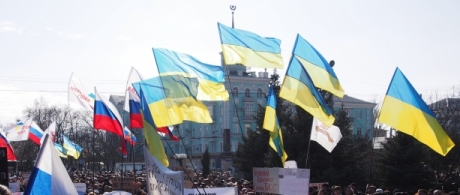Ένας φυλετικός μαχητής στην Μαρίμπ, στην Υεμένη, στις 26 Ιουνίου 2012. (Khaled Abdullah / Courtesy Reuters)
Από τα μέσα τού εικοστού αιώνα, η Μέση Ανατολή έχει δει περιφερειακούς ηγεμόνες να έρχονται και να παρέρχονται. Οι δεκαετίες τού 1950 και του 1960 ήταν η εποχή τής Αιγύπτου: Το Κάιρο ήταν η πρωτεύουσα του αραβικού κόσμου και η πόλη τού μετα-αποικιακού χαρισματικού ηγέτη της, Γκαμάλ Αμπντέλ Νάσερ. Αλλά η νίκη τού Ισραήλ επί της Αιγύπτου, της Ιορδανίας και της Συρίας στον πόλεμο του 1967, ο θάνατος του Νάσερ το 1970, και η άνοδος των τιμών τού πετρελαίου μετά τον πόλεμο του 1973 έφερε το τέλος αυτής της εποχής. Καθώς εκατομμύρια Αιγυπτίων και των άλλων Αράβων έφυγαν από τις πατρίδες τους για τον πλούσιο σε πετρέλαιο Κόλπο, το επίκεντρο της αραβικής πολιτικής πήγε μαζί τους. Καθώς οι περιουσίες τού Κόλπου αυξήθηκαν, ιδίως στην Σαουδική Αραβία, το ίδιο συνέβη και στην πολιτική επιρροή τού Ριάντ. Η εισβολή τού ηγέτη τού Ιράκ, Σαντάμ Χουσεΐν, στο Κουβέιτ το 1990, ωστόσο, και ο επακόλουθος πόλεμος υπό αμερικανική ηγεσία, ο οποίος ξεκίνησε από Σαουδαραβικό έδαφος, κατέστησε σαφές ότι το πετρέλαιο θα μπορούσε να κάνει τις χώρες τού Κόλπου, συμπεριλαμβανομένης της Σαουδικής Αραβίας, να αποκτήσουν μεγάλη επιρροή, αλλά θα εξακολουθούν να χρειάζονται την αμερικανική προστασία.



